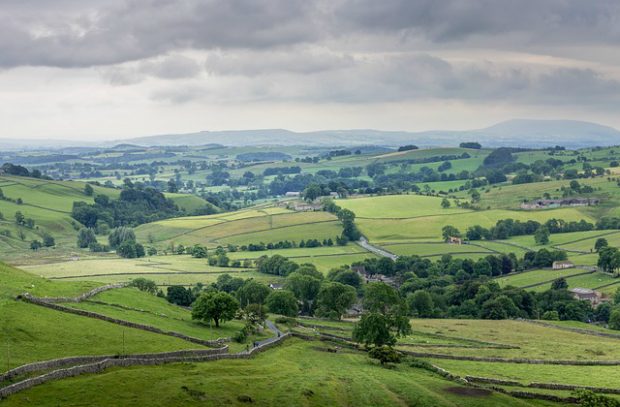
The government’s landmark Environment Bill to tackle the biggest environmental priorities of our time has moved a step closer to becoming law following its second reading by MPs (Monday 28 October).
Following yesterday’s debate, the Bill moved onto the Committee stage for further scrutiny and onto the next stages of the Parliamentary process for becoming law.
The transformative Environment Bill, introduced to Parliament two weeks ago, will help ensure that we maintain and improve our environmental protections as we leave the EU. It will build on the UK’s strong track record and sets out a comprehensive and world-leading vision to allow future generations to prosper. Environmental principles will be enshrined in law and measures will be introduced to improve air and water quality, tackle plastic pollution and restore habitats so plants and wildlife can thrive.
Legislation will also create legally-binding environmental improvement targets. A new independent Office for Environmental Protection will be established to scrutinise environmental policy and law, investigate complaints and take enforcement action against public authorities, if necessary, to uphold our environmental standards. The office’s remit will include all climate change legislation, enabling the office to hold the government to account on its commitment to reach net zero emissions by 2050. By also championing nature-based solutions, the Bill demonstrates our commitment to tackle climate change.
The Bill also places the bold ambition of our flagship 25 Year Environment Plan on a statutory footing and grants powers to enhance nature and habitats and combat the devastating effects of plastics on our natural environment. Introducing charges for a number of single use plastic items will build on the success of the government’s 5p plastic bag charge, which has cut sales from the biggest supermarkets by 90% since 2015.
Beginning the second reading, Environment Secretary Theresa Villiers said:
This Government recognises the profound importance of the great environmental challenges of our time.
We are the first Government to set the goal that this generation should leave the natural environment in a better state than it was bequeathed to us. And this is the first Government to make a legally binding commitment to become a net zero carbon economy.
This is a truly landmark piece of legislation, enshrining environmental principles in law, requiring this government and its successors to demanding and legally binding targets and creating a world leading environmental watchdog to hold them to account.
During the debate, many MPs expressed support for the Bill but raised points about the Office for Environmental Protection’s independence and funding, as well as how the targets system will work. Air quality, water and plastics were also discussed.
Closing the debate, Environment Minister Rebecca Pow said:
The substance of this debate is the greatest issue of our time. The Environment Bill will make a much needed step change to protect and enhance our environment.
“There are big ambitions in the Bill, and rightly so. We must talk about all the issues in Committee, and I hope that everyone will join in. This is a transformative Bill that will give a whole new approach to environmental protection and enhancement.
Heading into the debate, there has been ongoing speculation that the Bill will weaken environmental protections currently provided by the European Union. However, we are very clear this is not the case.
The Environment Bill will provide a robust framework for maintaining and strengthening environmental standards as the UK leaves the EU, such as through creating an independent statutory body to hold the Government to account, embedding a set of environmental principles across Whitehall and placing the 25 year environment plan on a statutory footing.
We have no intention of weakening our current environmental protections as we leave the EU. The UK is an advanced, modern economy which has long been a proponent of international action to tackle anti-competitive practices and raise regulatory standards. In the area of environmental protections, the UK already exceeds EU minimums in a number of areas — and we will continue to lead the way on these important issues in the future.